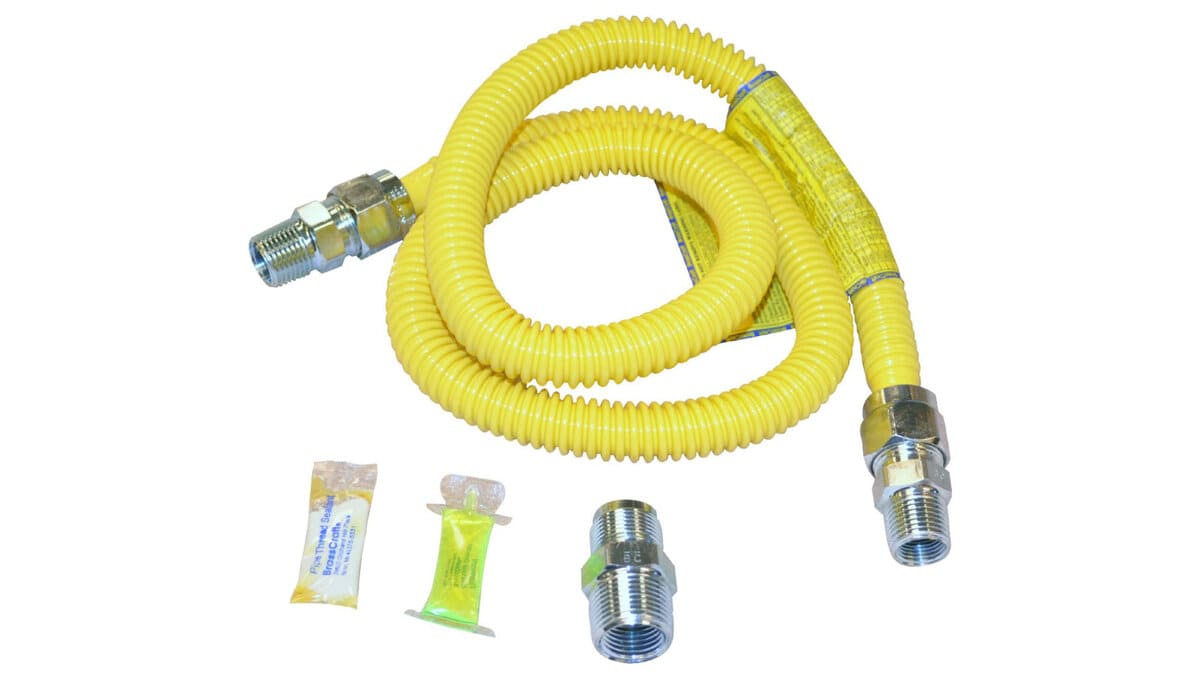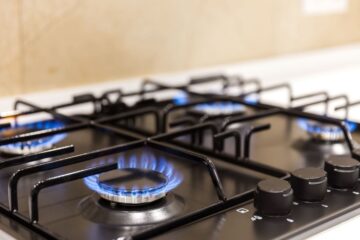When it comes to installing a gas line for a stove, safety is of utmost importance. Working with propane or natural gas can be dangerous, and ensuring that the installation is done correctly is vital to ensuring the safety of the home and its occupants. So, who can install a gas line for a stove?
In general, it is recommended to hire a licensed and experienced professional to install a gas line for a stove. This could be a plumber, HVAC technician, or gas line specialist. These professionals have the necessary training and expertise to ensure that the installation is done safely and up to code. Additionally, they have the necessary tools and equipment to get the job done efficiently and effectively.
Licensed Professionals
When it comes to installing gas lines for stoves, it is important to hire a licensed professional. Gas line installation is a complex task that requires specialized knowledge and expertise. Licensed professionals have the necessary training and experience to ensure that the installation is done safely and correctly.
In most states, plumbers are authorized to install gas lines. They are required to have a plumbing license and insurance in accordance with state and local laws. When hiring a plumber, it is important to verify their license and insurance to ensure that they meet the necessary requirements.
Another type of licensed professional who can install gas lines is a natural gas plumber. They have a master plumbing license that demonstrates a high degree of knowledge and experience in working with natural gas. Natural gas plumbers are specialized in installing and repairing gas lines, and they are equipped with the necessary tools and equipment to get the job done.
It is also important to note that some states require a separate gas line installation license. In these states, it is essential to hire a licensed gas line installer to ensure that the installation is done safely and legally.
DIY Installation
Installing a gas line for a stove can be a daunting task for those who are not familiar with plumbing or gas systems. However, some homeowners prefer to take on the task themselves to save money.
Risks
DIY installation of a gas line for a stove can be dangerous. Improper installation can lead to gas leaks, which can cause fires, explosions, or carbon monoxide poisoning. It is essential to follow all safety guidelines and regulations to ensure the safety of the household.
Safety Concerns
Before starting the installation process, it is essential to gather all necessary tools and materials. These include a gas shutoff valve, a flexible stainless steel connector, a pipe cutter, a wrench, and a gas leak detector.
The installation process involves cutting the gas line, installing the shutoff valve, and connecting the flexible stainless steel connector to the stove. It is crucial to ensure that all connections are tight and leak-free.
Before turning on the gas supply, it is essential to test the system for leaks. This can be done by applying a gas leak detector solution to all connections and checking for bubbles.
It is important to note that DIY installation of a gas line for a stove may not be legal in some areas. Homeowners should check with their local plumbing inspector or gas utility before starting the installation process.
Costs
Installing a gas line for a stove can be a costly endeavor, with prices varying depending on several factors. According to recent search results, the average cost to install a new gas line ranges from $567 to $3,500, with most homeowners spending between $150 to $886 for a single appliance.
Factors Affecting Cost
Several factors can influence the cost of installing a gas line for a stove. These factors include:
- Distance from gas supply: The further the stove is from the gas supply, the more expensive the installation will be. This is because more piping will be required to connect the stove to the gas supply.
- Complexity of installation: If the installation requires significant modifications to the existing gas supply system, the cost will be higher.
- Type of piping used: The type of piping used can also affect the cost of installation. For example, black iron piping is generally more expensive than flexible gas piping.
- Permits and inspections: Depending on local regulations, permits and inspections may be required for gas line installations. These additional costs should be factored into the overall cost of installation.
It’s important to note that converting from electric to natural gas or propane will always require new pipes, which can add to the overall cost of installation.
Permits and Regulations
Installing a gas line for a stove requires proper permits and adherence to local regulations. Homeowners must obtain the necessary permits from their local government before starting the installation process. Failure to do so can lead to safety hazards and legal issues.
Local Regulations
Each state and municipality has its own set of regulations regarding gas line installation. It is important to research and understand these regulations before beginning any installation work. In most states, only licensed and insured master plumbers are authorized to install gas lines. Homeowners can apply for permits themselves for some jobs, but this is not the case with gas permits. In many states, only a certified fitter may apply for the permit.
It is also important to calculate the gas piping size needed using a chart in the local plumbing code book. This ensures that the gas line is properly sized for the stove and that it can handle the required gas flow. Additionally, the new pipes must be securely sealed with gas-grade plumber’s tape, pipe sealant, and a pipe wrench to prevent gas leaks.
Conclusion
In conclusion, installing a gas line for a stove is a task that requires expertise and knowledge of local regulations. While some homeowners may be tempted to install the gas line themselves, it is important to note that this could be dangerous and may not be compliant with local codes.
Professional plumbers and gas line installers are licensed and insured according to local regulations, and they have the knowledge and expertise to install and run gas lines according to code. They can also ensure that the gas line installation is safe and meets all necessary regulations.
It is important to note that installing a gas line for a stove may also require a permit and inspection from local authorities. A professional installer will know what is permissible in your location and ensure not only peace of mind but legal compliance.
Overall, it is recommended that homeowners hire a professional installer to install a gas line for their stove. This will ensure that the installation is safe, compliant with local regulations, and meets all necessary requirements.



